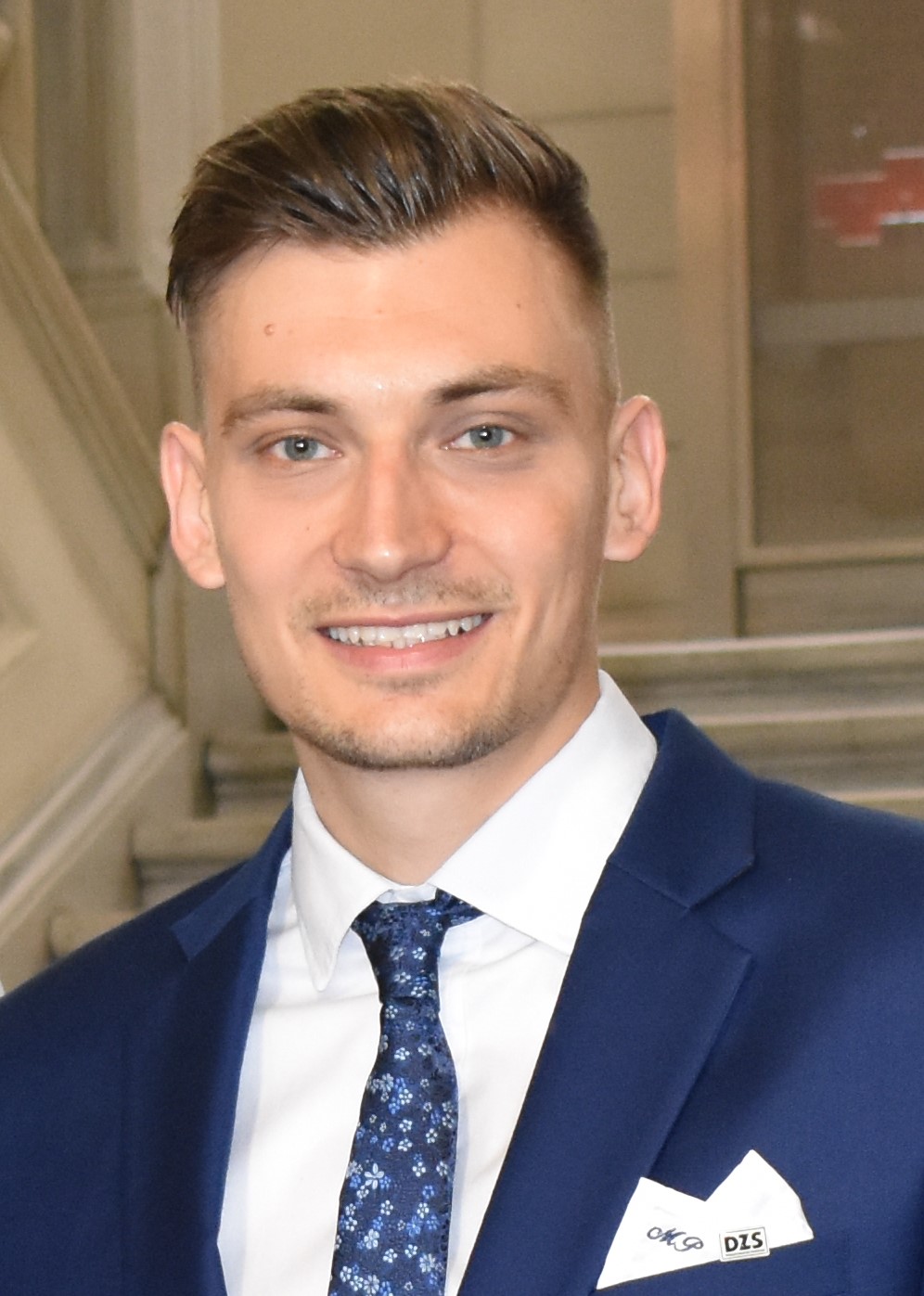Research Assistant

Dipl.-Ing. Marko Pavlić
Machine Vision and Perception Group (MVP)
Work address 1
Machine Vision and Perception Group (MVP)
Friedrich-Ludwig-Bauer-Str. 3/II
85748
Garching b. München
Contact
Room: 5932.02.190
Floor: 2
Building: 5932 Friedrich-Ludwig-Bauer-Str. 3 Garching b. München
Research Interests
- Learning from Demonstration (LfD)
- Robotic Grasping
- Robotic Control
- Kalman Filter Design
Education
Marko Pavlić is a research assistant in the Machine Vision and Perception Group under Prof. Dr.-Ing. Darius Burschka. He received his master's degree in Eletrical Engineering from the Technical University of Graz, Austria, in 2019. Before joining the Machine Vision and Perception Group as a doctoral candidate in 2021, he worked as a Systems Engineer designing software for localisation of railway vehicles.
In his new role, he is part of the KI.Fabrik project that will enable to manufacture various mechatronic products by means of fully modular, reconfigurable, highly automated and integrated AI technologies.
Current Projects
Here are current topics listed which I am working on. Please do not hesitate to contact me if you are interested in any of the following topics!!!
Designing the factory of the future for AI-supported production technologies
In the KI.Fabrik project we are responsible for the development of sensitive robots and new AI algorithms.
Check out what was achieved so far. (Videos)
Learning from Demonstration
- A thesis can be defined individually. Please send me an email.
In the industry, there has been a constant demand for methods that allow for a time- and cost-efficient re-programming of robots by non-expert personnel. Research on task-level programming (TLP), robot skills and Learning from Demonstration (LfD) has produced promising results but many approaches still rely on large amounts of data or require the end-users to have experience in the handling of robots. We aim to build a framework, which achieves the extraction of a parametrized skill sequence from a video recording of an assembly task demonstration executed by a human demonstrator.
Open Topics
Robotic Skills and Grasping Skills
- A thesis can be defined individually. Please send me an email.
Here we aim to use the extracted skill sequence from above LfD framework to execute the task on a new environment. Therefore, we need to implement intelligent robot skills. In addition, physical parameters of the demonstration must be learned, as these are not determined by pure passive observation. We give the robot a sense of touch through additional sensors in the gripper and develop algorithms to identify physical parameters of the environment.
Open Topics
Kalman Filter Design
We use a RGB-D camera to track human motion. This data is usually very noise and the task is to design a Kalman Filter for improving the human motion tracker.
Open Topics
Object Detection and Pose Estimation
The task is to use RGB-D camera input to recognize and estimate the 6D pose of objects. Objects will be factory related, e.g. gear box parts.
Open Topics
2024
2023
- RobotScale: A Framework for Adaptable Estimation of Static and Dynamic Object Properties with Object-dependent Sensitivity Tuning 2023 32nd IEEE International Conference on Robot and Human Interactive Communication (RO-MAN), Busan, Korea, Republic of, 2023 mehr…
- Dezentrale, rekursive, flexible Multi-Agenten Softwarearchitektur als Grundlage einer Fabrik der Zukunft für KI-gestützte Produktionstechnologien 2023 VDI-Kongress AUTOMATION (VDI KA), 2023 mehr… BibTeX